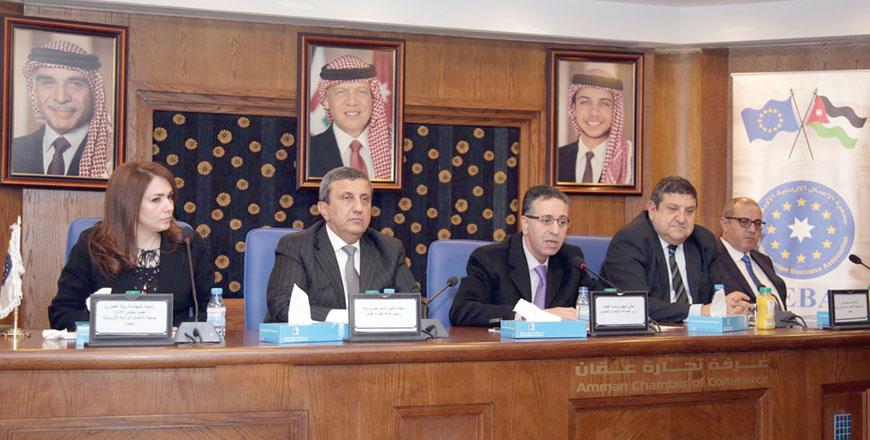You are here
‘Industries still facing difficulties in recruiting Syrian workers’
By JT - Dec 05,2016 - Last updated at Dec 05,2016
AMMAN — The reluctance of Syrian labourers to work in the industrial sector is a hindrance for the Kingdom to benefit from the deal with the EU on relaxed rules of origin, Secretary General of the Ministry of Industry, Trade and Supply Yousef Shamali said Monday.
In an interview with the Jordan News Agency, Petra, Shamali called on the UNHCR to launch an awareness campaign among Syrian refugees, focusing on how their given rights will not be affected if they receive a job through official channels.
There are challenges facing benefiting from the EU deal, including the requirement of having Syrian refugees work in the private sector at a percentage of no less than 15 per cent during the first two years since the decision enters into force, to reach 25 per cent during the third year, Shamali said.
“Our ambition is to grant 200,000 Syrians work permits, which would enable all Jordanian industries to benefit from the decision to relax the rules of origin,” the official explained, noting that so far, 33,000 work permits have been issued for Syrian refugees.
He added that the authorities are considering giving Syrian workers permits valid for three to five years and maintaining the decision to exempt them from the permits’ fees in order to encourage them to work in the industrial sector.
However, Shamali said employing Syrian workers will not come at the expense of Jordanian workers, noting that the EU deal is bound to increase investment rates and bring more foreign investments into the Kingdom, which increases job opportunities for Jordanians, in addition to reducing the trade balance deficit and opening new markets for local products.
The EU deal to simplify the rules of origin is a chance for Jordanian exports to enter European markets, Shamali said, noting that adopting 18 industrial estates in the decision covers around 90 per cent of the industrial sectors.
Six Jordanian companies have submitted applications to benefit from the deal, he added.
Shamali said the ministry is ready to provide technical support to factories wishing to export to the EU, noting that the industrial development directorate in the ministry oversees their applications, requirements and approvals.
Moreover, he said a Dutch expert has been employed in the Industry and Trade Ministry, under the support of the Dutch government, to help industrial sectors have their products enter European markets and achieve maximum benefit from the EU deal.
Jordanian exports to the EU amounted to JD144 million in 2002 and increased to JD206 million in 2014, but in 2015 they decreased to only JD123 million, Petra reported, adding that imports from EU member states increased from JD1 billion in 2002 to JD3 billion in 2015.
Related Articles
AMMAN — Three Jordanian industrial companies have recently applied to benefit from the deal between the EU and Jordan on relaxed rules of or
AMMAN — Jordan on Thursday said it submitted a request to the European Union demanding the inclusion of agricultural industries and products
AMMAN — Six Jordanian companies have so far completed the procedures deemed necessary to start exporting their products to the European mark

















